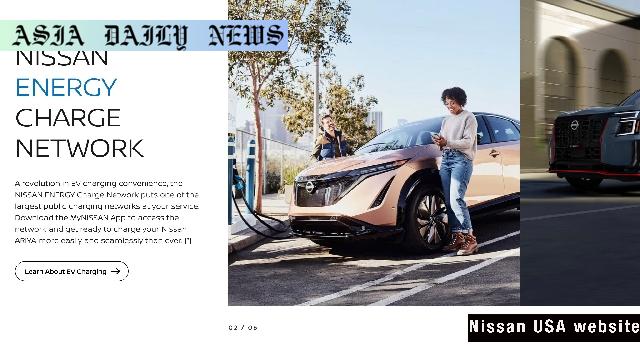Nissan EV Production – Japanese automaker Nissan delays two SUV electric vehicle models in the US to address market struggles.

Nissan Postpones EV Production Amid Weak Demand
Japanese automaker Nissan recently made headlines with its decision to delay the production of two of its electric vehicle (EV) models in the United States. Originally slated for production in 2028 at Nissan’s manufacturing plant in Mississippi, the SUVs will now face an indefinite delay that could extend up to a year. This comes as the company adjusts its EV strategy, citing weak anticipated demand in the American market.
Market Dynamics Prompt Strategic Reassessment
Nissan’s decision highlights the complexities automakers are grappling with in the EV market. A considerable slowdown in EV sales globally and lowered market expectations have caused major industry players like Nissan to reassess their plans. Furthermore, Nissan has also abandoned plans to introduce two other EV models – a sedan and a compact SUV – in the U.S. market, suggesting a broader pivot away from aggressive expansion in this segment. Instead, the company appears to be refining its focus on models that align with market-ready demand.
Policy Uncertainty Adds to Challenges
The evolving American regulatory landscape is another contributing factor. The Trump administration is currently evaluating incentives introduced under the Biden administration aimed at bolstering the appeal of EVs. These incentives had been designed to lower the cost barrier of EV adoption for average consumers. The potential rollback of these incentives has added an additional layer of risk for automakers, further weakening the demand outlook and pushing companies like Nissan to adopt a more cautious stance.
Broader Implications for the EV Industry
Nissan isn’t the only automaker adapting to the changing dynamics. Honda has also postponed investments in EV and fuel-cell vehicle technologies, citing revised targets that reflect slower-than-anticipated growth. These adjustments underscore the overlap between consumer demand, policy changes, and corporate strategies within the EV market. Combined, such shifts could lead to slower adoption timelines and modified strategies across the industry.
A Renewed Call for Market Focus
To navigate these challenges, automakers like Nissan and Honda may need to place greater emphasis on understanding market demand and consumer preferences. A balanced approach that combines innovation with realistic market assessments could help automakers rebound from the current slowdown. While delays may hinder immediate progress, a recalibrated approach could ultimately benefit Nissan’s position as the industry evolves.
Looking Ahead
The delay in Nissan’s EV production and its impact on the broader market paints a picture of caution but also presents an opportunity for reflection. As automakers navigate these complex conditions, strategic pivots could result in products better aligned with market realities. For now, Nissan’s move underscores the importance of adaptability and measured progress in an increasingly competitive and uncertain automotive landscape.
Commentary
Nissan’s Delay Reflects a Dynamic Market Reality
Nissan’s decision to delay the production of two electric SUVs in the U.S. highlights the intricate balancing act automakers face in the global EV market. Demand forecasts, consumer preferences, and external policy changes culminate in a web of challenges that require careful navigation. Tackling weak demand signals is no easy task, but it represents the agility companies like Nissan need to adopt to stay competitive.
Government Policies and Industry Uncertainty
One cannot discuss the EV landscape without addressing the impact of government incentives. As the Trump administration evaluates the incentive policies enacted by its predecessor, automakers are left in a limbo. Incentives traditionally ease entry-barriers for consumers transitioning to eco-friendlier vehicles, and their potential revocation could impose significant repercussions. Policy uncertainties such as this exacerbate industry challenges, forcing companies to take a wait-and-see approach.
A Broader Industry Perspective
Nissan’s delayed production resonates beyond its Mississippi plant. It underscores an industry-wide recalibration of expectations. Automakers including Honda and others exploring EV alternatives have exhibited similar caution, reflecting a possible plateau in consumer interest. Perhaps this slowdown affords the industry an opportunity: a space to innovate, strategize, and adapt toward consumer-focused advancements rather than aggressive rollouts. Such a shift could foster both stability and eventual growth for automakers.
Final Reflections
While the immediate delays could hinder progress, they provide a chance for reflection and recalibration. Industry growth, though slowed, may benefit from pragmatic strategies. As Nissan moves forward, their capacity to innovate and align with market needs will ultimately dictate their success. It’s a waiting game, but one filled with opportunities for foresight and ingenuity amid evolving challenges.


